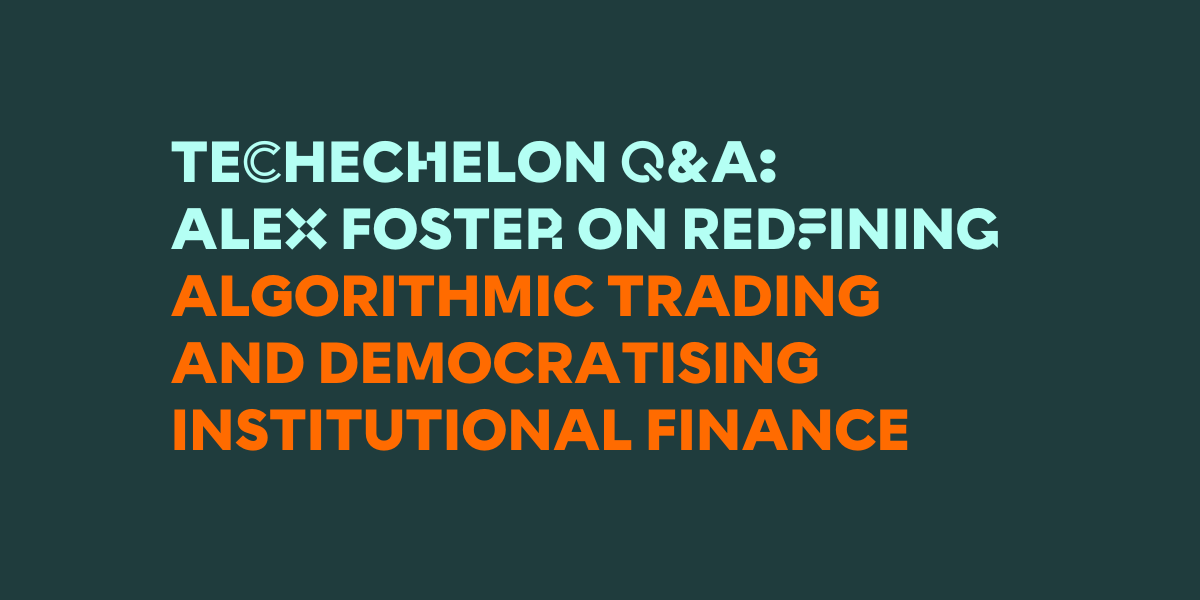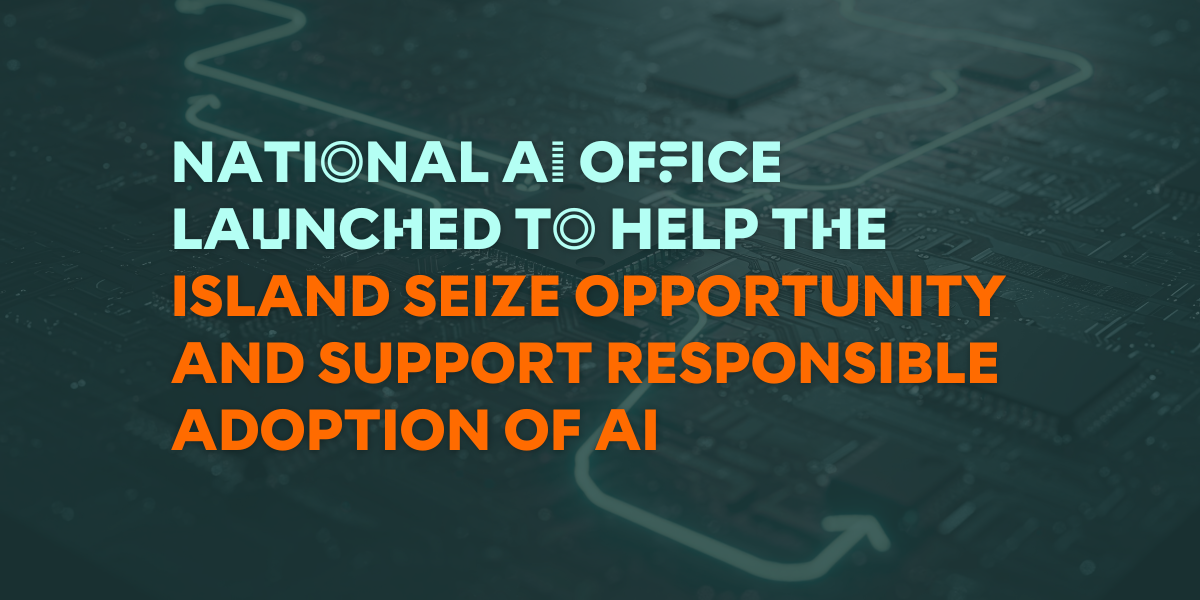TECHECHELON Q&A: ALEX FOSTER ON REDEFINING ALGORITHMIC TRADING AND DEMOCRATISING INSTITUTIONAL FINANCE
15 May 2025

In this feature published by TechEchelon, they spotlight Fintech entrepreneur Alex Foster – founder of Vertus and a bold innovator reshaping the future of algorithmic trading. With a focus on merging institutional-grade AI technology with broader market accessibility, Alex’s ventures are challenging traditional finance from the ground up.
Now splitting his time between the Isle of Man and London, Alex shares how his journey – from self-financed trading studies to building global Fintech businesses – has positioned him at the forefront of a new wave in investment strategy. In this in-depth Q&A, he opens up about the challenges, breakthroughs, and vision behind Vertus, and how technology is redefining the investment landscape for the better.
Executive Q&A: Alex Foster on Redefining Algorithmic Trading and Democratizing Institutional Finance
Alex Foster is a Fintech entrepreneur who is reimagining the future of algorithmic trading by merging institutional-grade technology with broader market accessibility. With a background rooted in trading, technology, and financial services infrastructure, Alex has built a reputation for identifying gaps in traditional finance and using cutting-edge AI solutions to bridge them. Through his latest venture, Vertus, Alex aims to democratize finance—delivering sophisticated trading strategies to investors beyond the walls of elite institutions.
Alex’s journey into finance began with a personal passion for trading and evolved into a series of ventures that refined his understanding of scalable, compliant, tech-driven investment models. From self-financed studies at the London Academy of Trading to founding firms like Alexander William and Vanquish Holdings, Alex consistently pushed against industry norms, embracing both innovation and regulatory rigor. His collaboration with co-founders Michal and Julius brought together complementary expertise in technology and quantitative finance, laying the foundation for Vertus’ high-growth trajectory.
Today, Alex continues to challenge conventional ideas of fund management by emphasizing risk control, transparency, and performance without compromise. In this exclusive Q&A, he shares insights into his entrepreneurial path, the evolving role of technology in finance, and how Vertus is positioned to lead the next wave of disruption in global investment markets.
Q: Alex, can you share a bit about your background and what inspired you to start Vertus?
I’ve always had a strong interest in business and financial markets. My journey into trading began with cryptocurrency, which helped me finance my studies at the London Academy of Trading. While there, I had the opportunity to learn from industry professionals—algorithmic strategy developers, investment bankers, and hedge fund managers—which gave me a solid foundation to build on.
Upon graduation, I partnered with a London-based tech firm that specialized in licensing algorithmic trading strategies to investors. As I gained experience, I realized I could be more effective working independently. Over the next three years, I developed a business model that combined cutting-edge trading technology with regulatory compliance, leading to the launch of my first Fintech venture, Alexander William.
Alexander William quickly gained traction, drawing strong user interest. That success allowed me to refine the model and transition the company and our products into a B2B framework, which opened the door to greater innovation. Recognizing the need for a white-label solution, I founded Vanquish Holdings to help businesses leverage our technology under their own brand. Within the first year, we had onboarded 44 clients globally.
As the business evolved, it became clear that proprietary technology was essential for staying competitive. That’s when I teamed up with Michal, a visionary in technology, and Julius, founder of the largest copy trading platform in Germany. Together, we launched Vertus, combining our expertise to push the boundaries of algorithmic trading. Our goal was to bridge the gap between institutional-grade technology and wider market access, redefining traditional finance as we know it.
Q: What was your professional journey before founding Vertus, and how did that experience shape your approach to the Fintech industry?
My previous ventures, Alexander William and Vanquish, were instrumental in shaping my understanding of Fintech infrastructure, market needs, and regulatory frameworks. Those experiences gave me firsthand insight into how technology-driven quant finance works and, more importantly, how to scale it effectively. By leveraging the network and infrastructure I had already built, we were able to position Vertus for rapid growth from the start.
Q: What was the initial challenge you set out to solve when you founded Vertus, and why did you choose to focus on the intersection of technology and fund management?
One of the biggest gaps we noticed in the industry was the lack of reliable, high-performance trading strategies available to investors. There was no shortage of capital, but truly sustainable and scalable solutions that could consistently generate alpha were hard to come by. Vertus was built to bridge that gap, using proprietary AI-driven trading models that could be licensed to regulated firms, ensuring both performance and compliance.
Q: Looking back, were there any pivotal moments or experiences in your career that led you to take the leap into the world of Fintech?
A key moment for me was during my trading education when I realized the power of rule-based, emotionless decision-making. Human traders are naturally influenced by emotions, but algorithmic strategies can execute trades with precision and consistency, without fatigue, bias or emotion. That, combined with the rapid advancements in AI and automation, made it clear that algorithmic trading was the future.
Q: What were some of the early challenges you faced when founding Vertus, and how did you overcome them?
Regulatory compliance and market risk were two major hurdles. Financial services are heavily regulated, so we worked closely with the Isle of Man FSA and Digital Isle of Man to ensure our framework met compliance requirements while allowing us to scale. On the trading side, we built AI-driven risk management protocols that dynamically adjust our strategies in real time to handle market volatility. These measures gave us both stability and a competitive edge.
Q: Can you describe the founding team at Vertus? How did you find the right mix of talent to bring your vision to life?
Having the right team was crucial. My experience provided a strong foundation and distribution network. Michal brought valuable cross-industry perspective from his MIT background and various tech ventures to the team. Julius, in contrast, contributed extensive knowledge in quantitative finance from his master's studies in Korea and, of course, experience running his previous Fintech venture. Together, our skill sets complemented each other perfectly, allowing us to execute our vision with a high-growth strategy from day one.
Q: How did you approach the challenge of merging technology with the often traditional, risk-averse world of fund management?
Risk management is at the heart of what we do. Instead of chasing high returns with excessive leverage, we focus on security, stability, and compliance. Our strategies use minimal leverage and sophisticated risk controls to outperform traditional investment models without exponential exposure. The fact that we attract clients purely through word of mouth speaks to the credibility of our approach—institutions are recognizing the value of our technology.
Q: What role do you believe technology will play in the future of fund management, and how does Vertus fit into that future?
Technology is set to be the driving force behind the future of fund management. Over the next 12–24 months, we expect AI-driven trading strategies to become more widely adopted, not just by hedge funds and institutional investors, but also by retail traders. Vertus is leading that shift by democratizing access to quantitative investment strategies and making advanced trading tools more accessible to a wider audience.
Q: How would you describe Vertus' core mission, and how do you ensure that it remains at the forefront of your decisions?
Our mission is simple: to democratize finance by giving investors access to institutional trading technology powered by cutting-edge AI. Every decision we make—whether it's about technology, compliance, or expansion—is guided by our commitment to innovation, performance, and security.
Q: What makes Vertus unique compared to other players in the Fintech space?
What sets us apart is our in-house expertise and proprietary technology. Many Fintech firms rely on third-party solutions, which limits their control over performance and security. We build our strategies from the ground up, allowing us to optimize every aspect of our trading models and maintain full control over their execution.
Q: How have you managed to strike a balance between innovation and regulatory compliance, especially in the financial services sector?
Rather than seeing regulation as a limitation, we use it as a strategic advantage. By working proactively with regulators, we’ve built a solid compliance framework that allows us to scale efficiently and securely. This not only ensures long-term stability but also strengthens trust with our clients and partners.
Q: What role does data play in the solutions Vertus provides? How do you ensure that it’s leveraged effectively without compromising privacy or security?
Data is the foundation of our technology. We use state-of-the-art analytics, machine learning, and AI-driven models to refine our trading strategies continuously. At the same time, we implement strict data protection protocols to ensure all client information remains secure and confidential.
Q: What does the future hold for Vertus? Are there any exciting developments or expansions on the horizon?
We’re focused on expanding our technology, forming new strategic partnerships, and making our strategies more accessible through securitized investment vehicles. Our goal is to continue setting new standards in Fintech innovation while increasing access to high-performance trading strategies.
Q: Finally, what advice would you give to aspiring entrepreneurs in the Fintech space who want to make an impact?
Stay ahead of the curve by constantly evolving with technology. Focus on solving real industry problems while keeping compliance in mind. And most importantly, build the right team—success in Fintech isn’t just about having the best technology, it’s about having the right people to execute your vision with you.





